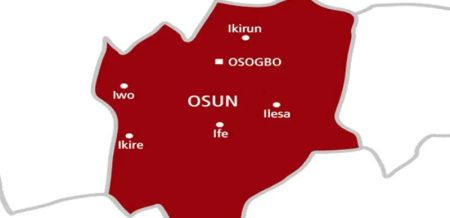Petrobras, Brazil’s state-owned oil behemoth, is charting a new course with Africa as its primary target for international expansion. Driven by the vision of CEO Magda Chambriard, the company is capitalizing on its deepwater expertise, honed in Brazil’s pre-salt fields, to explore promising offshore blocks along Africa’s western coast. This strategic pivot represents a significant shift for Petrobras, which previously divested its African assets to concentrate solely on Brazilian reserves. The renewed focus on Africa is fueled by geological similarities between the two continents, offering potentially lucrative opportunities for Petrobras to replicate its South American success. Côte d’Ivoire has rolled out the red carpet, granting Petrobras preferential rights to acquire nine offshore exploratory blocks, signifying a burgeoning partnership between the two nations. Furthermore, Nigeria, Angola, and Namibia have also expressed interest in collaborating with the Brazilian oil giant, further solidifying Petrobras’s position as a key player in Africa’s energy landscape.
This ambitious expansion into Africa is not merely a geographical diversification but a calculated response to several converging factors. Firstly, Petrobras is encountering delays in securing environmental permits for exploration off the Amazon rainforest coast, necessitating the pursuit of alternative avenues for growth. Secondly, the global decline in oil prices compels the company to optimize costs and streamline operations, making the potentially high-yield African reserves even more attractive. Thirdly, President Lula’s administration seeks to leverage Petrobras’s capabilities to bolster the Brazilian economy, and international expansion aligns with this objective by increasing revenue streams and strengthening the country’s global presence. This ambition to revitalize the Brazilian economy using Petrobras is further evidenced by the company’s plan to expand its role in domestic fertilizer production, with the resumption of operations at two plants expected by year-end.
The parallels between the geological formations along Brazil’s eastern margin and the African coastline provide a strong foundation for Petrobras’s confidence in this venture. The company’s expertise in deepwater exploration, particularly in the challenging pre-salt formations, positions it as an ideal partner for African nations looking to tap into their offshore resources. This renewed engagement with Africa marks a return to the continent after a period of divestment under previous governments. Now, Petrobras is strategically positioning itself to leverage its technical prowess and experience to unlock the vast potential of Africa’s deepwater reserves.
However, the path forward is not without its challenges. Navigating the complex regulatory landscape and securing necessary permits in different African countries will require deft political maneuvering and adherence to local regulations. Furthermore, competition from other international oil companies, such as TotalEnergies, which recently outbid Petrobras for a stake in Namibia’s Mopane field, presents a significant hurdle. The fluctuating global oil prices also add an element of uncertainty, forcing Petrobras to adopt a cautious approach by cutting costs and simplifying projects. The company’s upcoming strategic plan for 2026-2030 will likely reflect this emphasis on austerity, a move that has already been signaled to investors.
Balancing the competing priorities of economic growth, investor returns, and environmental responsibility is a delicate act. The Lula administration’s push for Petrobras to contribute to economic development while simultaneously positioning Brazil as a leader in the fight against climate change creates inherent tension. This is particularly evident in the ongoing debate surrounding the proposed exploration off the Amazon coast, where environmental concerns are clashing with economic imperatives. Successfully navigating this complex interplay of economic, environmental, and political considerations will be crucial to Petrobras’s long-term success.
Petrobras’s African strategy represents a significant gamble, one that carries both immense potential and considerable risk. The company’s success hinges on its ability to leverage its deepwater expertise, navigate complex regulatory environments, and effectively manage costs in a volatile global oil market. Moreover, balancing the Brazilian government’s ambitious economic agenda with the company’s responsibility to deliver profits to investors will require strategic decision-making and a focus on long-term sustainability. The unfolding story of Petrobras’s African venture will be closely watched as a test case for the company’s ability to adapt to the evolving energy landscape and maintain its position as a key player in the global oil industry. The results of this ambitious undertaking will have profound implications not only for Petrobras but also for the future of energy exploration in Africa and beyond.














